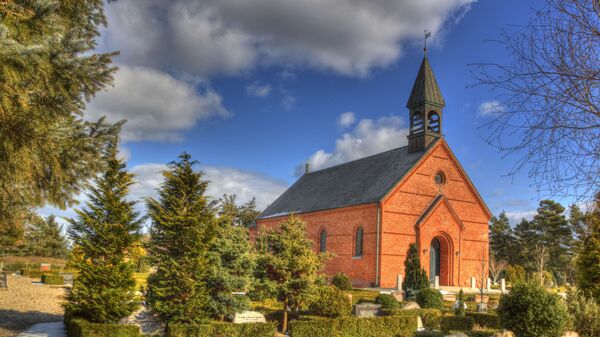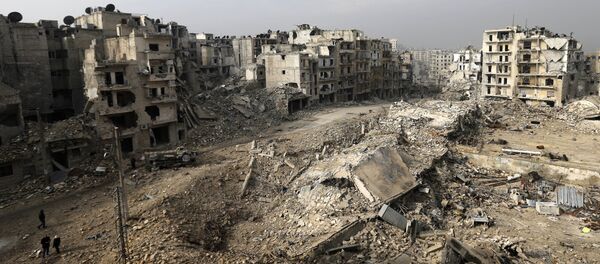In this year's unparalleled 'spiritual awakening,' Denmark's Refugee Board, the nation's supreme body in asylum cases, examined 169 cases, in which conversion from Islam to Christianity was listed as the reason for asylum — more than in the previous three years combined.
A total of 73 people (or 43 percent of the new Christians) received a residence permit, while another three cases were referred to the Immigration service for re-evaluation, Danish Radio reported.
Some of the applicants previously had their applications rejected and resumed their cases on the grounds that they have since undergone baptism. In the Kærshovedgård deportation center alone, which houses rejected asylum seekers who refused the opportunity of voluntary return, 28 foreigners have been baptized in 2017.
Christian Langballe, the Danish People's Party church rapporteur and a priest himself, is critical of the fact that even rejected asylum seekers are baptized. There is a risk that the church will be abused in a last-ditch attempt to be allowed to stay in Denmark, he argued.
"If you get rejected and say, 'Okay, now I'm converting,' I think there's a problem," Christian Langballe told the Jyllands-Posten daily.
READ ALSO: Norwegian Muslim Apostates Living in Fear of Persecution
Even Immigration Minister Inger Støjberg of the Liberal Party is suspicious over the "spiritual revival," in which so many people "suddenly discover God."
Church Minister Mette Bock of the Liberal Alliance ventured, however, that it was impossible for priests to stop the would-be converts from fulfilling their wish.
"I find it hard to see how a priest could possibly find a theological reason for rejecting a person of age who wants to be baptized, after clarification and thorough conversations," Mette Bock said.
The Church of Denmark first encountered an unparalleled influx of asylum seekers seeking baptism last year. Former Church Minister Bertel Haarder encouraged the church to wait for the baptism until the asylum cases were finally settled to avoid suspicion that people had a self-serving agenda rather than spiritual interest. However, it was flatly rejected by the clergy.
READ ALSO: Acts of Faith: Refugees Switch to Christianity to Avoid Deportation From Finland
At the same time, the percentage of people granted asylum has dropped significantly: from 85 percent in 2015 to a meager 27 percent in the second quarter of 2017.
The top nationalities seeking asylum in the Nordic country are Syrians, Moroccans and Eritreans.




